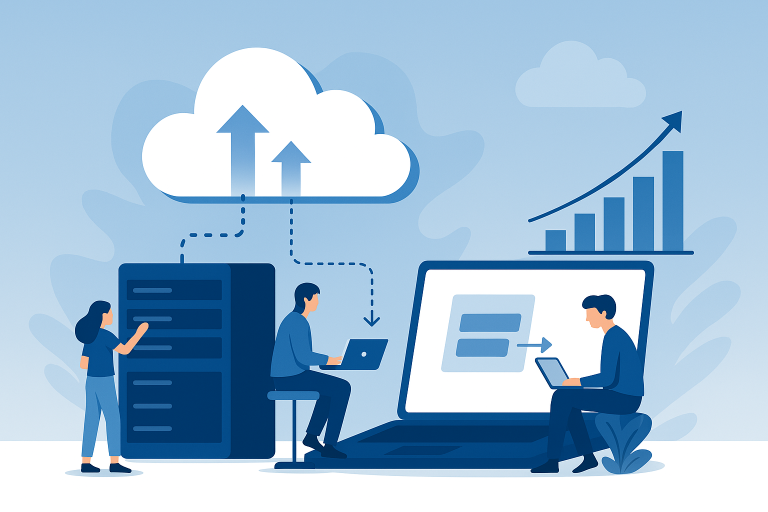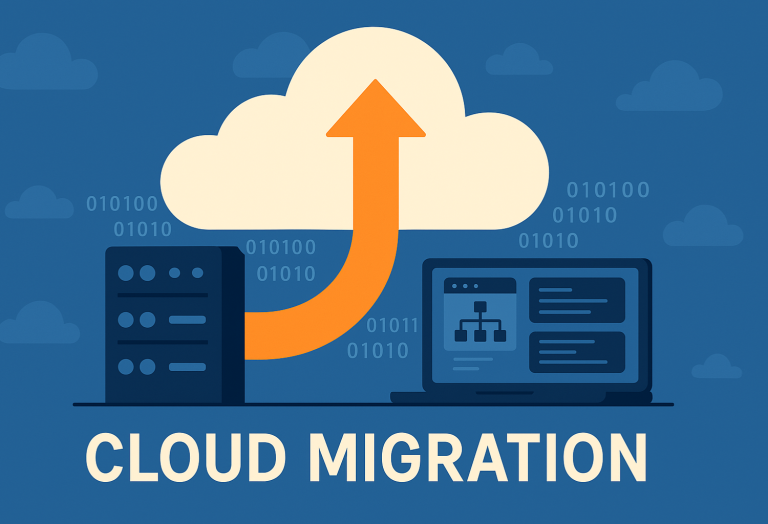
The pandemic has pushed multiple companies towards cloud computing adaptation. The benefits of cloud computing are attractive and diverse, starting from cost savings and lower capital investment to quicker and more efficient data sharing. Therefore, companies have considered making a partial or complete transition toward cloud-based computing to facilitate their data storage and computing needs. However, the transition to the cloud associates some risks that arise when moving to the cloud. Here are the top ten centres on the threat of cloud computing.
1. Unauthorized access to customer and business data
Small and medium-sized companies are easier to breach for Cybercriminals, whereas larger companies provide the allure of larger payouts— anyone can be the target.
Small companies migrate their data to the cloud with a faith that they are pushing security risk to a larger organization, efficient to protect their sensitive information. And cloud server providers aggregate data from thousands of small businesses. Therefore, each business that uses a cloud service increases the value of that service provider as a potential target. This concentrates the chance of a single point of failure. Any cyberattack or disaster at a cloud service provider can affect every one of its customers.
2. Insider Threats
Another security risk to cloud computing is insider risks, which can arise from the environment within the cloud services team. When you outsource services to a third-party server, you have to consider and worry about the moral dilemma of your staff and the vendor’s staff. More people have access to your business data and systems that support the service—means you have to extend trust to people you even never met. It can increase the risk of insider threats.
3. Security risks at the vendor
When you hire a cloud service provider for business-critical tasks involving sensitive business data like customer payment data and your mailing lists, you are relying on a bunch of other people whom you may not know properly; you are putting the trust of your business into their hands. Your market reputation is no longer dependent only on the integrity of your business but on the integrity of the vendor’s business. Even if you know the vendor’s staff who have access to your business data, you don’t have any control over them. It is tough to trust others when it is about the reputation of your company.
4. Compliance and legal risks
When hiring a Cloud service provider, ensure they maintain their compliances and have adequate legal protections. Otherwise, it will be risky to outsource the processing or storage of data with that cloud service vendor. Your data needs protection —without proper legal protections, your cloud vendor’s ‘safe house’ is not so safe and if there is a data breach at the cloud service, that can expose your data too.
5. Overloaded Resources
One of the important reasons behind cloud migration is a data storage facility and on-demand resource availability. As several companies are adopting the cloud to meet their storage and resource needs, it can squeeze the cloud resources. Though that problem varies from provider to provider and it is up to you to find the right cloud services provider and to ensure that they have enough resources available to meet your business requirements.
6. Performance of Service Providers
Keeping your business data with a third-party services provider can be risky. It needs a lot of trust in your partner and the professionalism and efficiency of their team. If the service provider’s cloud is overloaded or goes down, you will be the sufferer as well – your system will go down also.
It is good to be clear about all terms and conditions before opting for a cloud service and depend on a third-party source. Instead of being stressed after hiring a service partner, ensure that you entrust your vendor to a reputable cloud services provider. And, also make sure that you are comfortable in hand over the control of your data.
7. Availability Risks
It is impossible to guarantee 100% uptime for any service provider. When you migrate to the cloud, you have to rely on your cloud service provider for business-critical tasks, which means now you are dependent upon two separate external services — the cloud service provider and your Internet service vendor. If the Internet goes down for some reason, it will also take the cloud service with it. And, if the cloud vendor goes down, by chance, due to bad weather, distributed denial-of-service (DDoS) attacks, or system failure, your whole cloud-dependent business process will be unresponsive. Even if a service provider assures you a 99% guarantee, that means there is a chance of 1% service disruption, which could be a risk to the uninterrupted service policy of your business.
8. Staff Inexperience
Lack of skilled security professionals can be a real threat to your data security. It is easy for unskilled users to expose sensitive business data to significant direct risks. Incorporating new technology or software is not enough; you also need to train your staff on board with the changes in operations. It is essential to have all staff be trained and well-equipped to accept the changed working environment.
9. Loss of data
Any kind of malicious attack on your service providers server can cause harm to your data stored on those cloud servers. Losing sensitive information is devastating to any organization, especially if they have no recovery plan.
10. Risks related to lack of control
When you hire a cloud service provider and use their resources, the vendor is in control of the features. There is no guarantee that the features you use today will remain the same at a price tomorrow. The vendor can increase its price anytime, and if your clients depend on that service, you will be forced to pay the additional cost for that service.
And, if you get behind on your bill, you may lose access to your data as it is held hostage by the service provider. You can access the service and export your data after paying the dues.
Conclusion:
Cloud computing certainly comes with some serious risk factors in surrendering control of your data, but it also offers a bunch of benefits. So, it is crucial to choose a cloud IT consulting company to get the right partner through a thorough background checking process. You also need to go through the service package, regulation and compliances checking, etc., to ensure that you are comfortable with it before deciding to move to the cloud.

